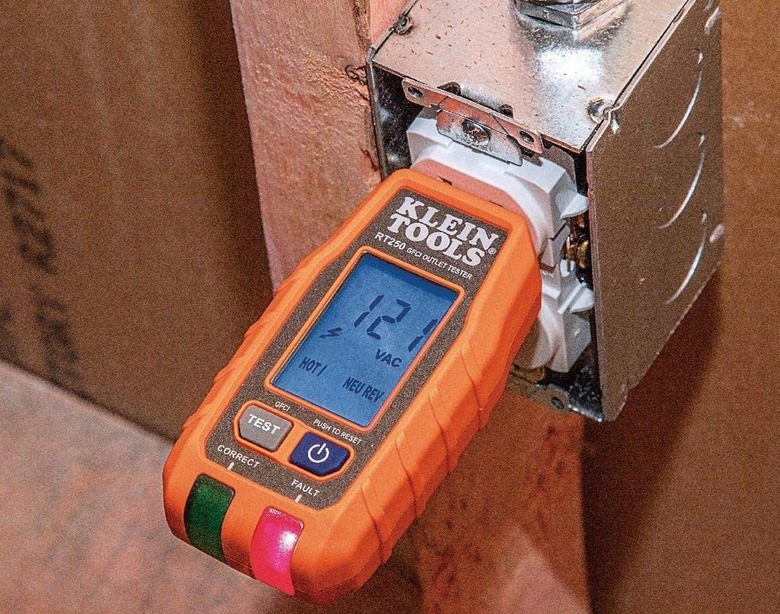How To Remove Electrical Wire From A Push-In Receptacle
We may receive a commission on purchases made from links.
Some electrical receptacles have push-in electrical outlet connections. These connections are the simple way of making a good connection without the need to form a hook in the wire. There are, however, limitations to these connections — but with some care and safety precautions, you can change that old, worn-out receptacle with ease.
Limitations of Push-in Receptacles
Limitations of Push-in Receptacles
Push-in style receptacles are typically found in 15-amp circuits. This means that if you are looking to replace a receptacle on a 20-amp circuit, then the wire will be a minimum of 12 gauge and will not fit into the push-in connection. For push-in receptacles, the wire will need to be 14-gauge solid or stranded copper wire.
Things Needed
How to Remove the Wire From a Push-in Receptacle
1. Shut Off Power to the Circuit
Locate the breaker or fuse that isolates the power going to the circuit you're working on. Be sure that everyone in the house is aware of the work being performed, and shut off the appropriate breaker or remove the appropriate fuse.
2. Check to Make Sure the Power Is Shut Off
Use a non-contact voltage tester pen to confirm that the power is off at the receptacle, by sticking the pen tip into each slot of the receptacle. The tester should indicate no voltage.
3. Remove the Cover Plate From the Wall
To remove the cover plate from the wall, remove the single small screw between the upper and the lower receptacles and the plate will come off. Some receptacles will have two screws, one on the top and one on the bottom.
4. Remove the Electrical Outlet
Using proper electrical safety, remove the two screws, one on the top and one on the bottom, and carefully pull the electrical outlet from the wall. Note the wiring by taking a picture of the connections. Touch the voltage tester to each wire in the electrical box to confirm that there is no power.
5. Remove the Wire From a Push-in Connection
Locate the release slot just below the wire to be removed. Using a small, flat-blade screwdriver as a tool to release the wire from the outlet, insert the blade into the releasing slot. With the palm of your hand, push in the butt of the screwdriver toward the slot and pull the wire to be removed out. Repeat this step on both electrical connections.
If the Wires Will Not Come Out
If the Wires Will Not Come Out
If you find the wire will not come out and there is enough wire to work with, simply cut the electrical wiring away from the electrical outlet. Once the electrical wiring is cut clean, strip it to the length indicated on the back of the new electrical outlet.
Tip
Consider hiring a licensed electrician for your project if it entails extensive or complicated electrical wiring.
Be patient and work slowly when removing old electrical receptacles; they're sometimes corroded, making the wiring very difficult to remove.
